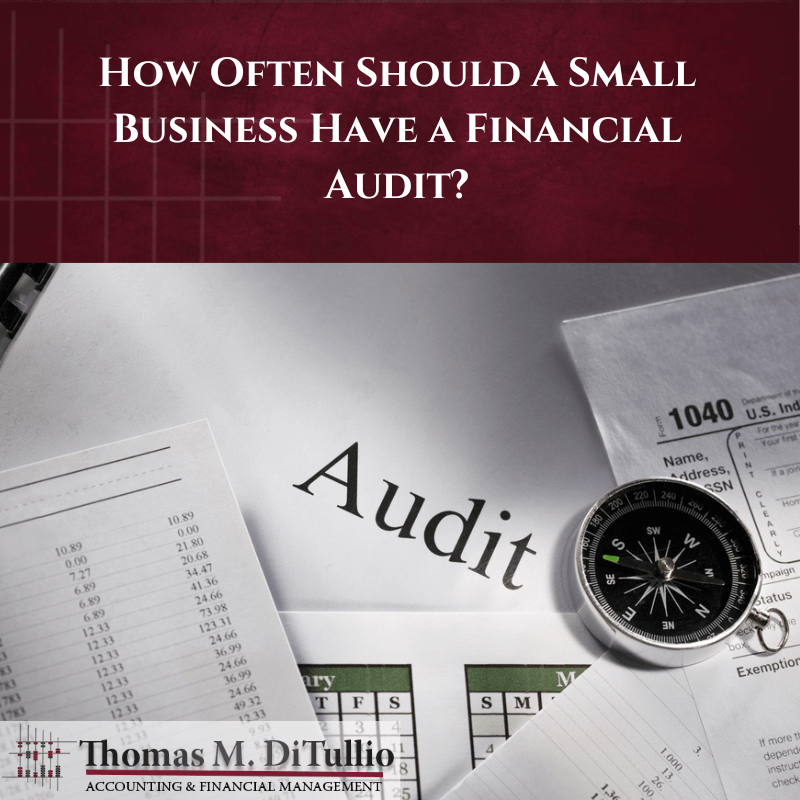How Often Should a Small Business Have a Financial Audit?
A financial audit is an independent examination of the financial statements and records of a business by a certified public accountant (CPA) or an external auditor. The purpose of a financial audit is to verify the accuracy and completeness of the financial information and to ensure that the business is complying with the applicable accounting standards and tax laws.
A financial audit can provide many benefits for a small business, such as:
- Enhancing the credibility and reliability of the financial statements
- Improving the internal controls and processes of the business
- Identifying and correcting any errors or frauds in the financial records
- Providing assurance and confidence to the stakeholders, such as investors, creditors, regulators, and customers
- Helping the business to obtain financing, attract investors, or sell the business
However, a financial audit can also be costly and time-consuming for a small business, as it requires:
- Hiring a qualified and independent auditor
- Preparing and providing all the necessary financial documents and records
- Cooperating and communicating with the auditor throughout the audit process
- Implementing and following up on the audit recommendations and findings
Therefore, a small business should carefully weigh the pros and cons of having a financial audit, and determine the optimal frequency and timing of the audit based on its needs and goals.
Factors to Consider When Deciding the Frequency of a Financial Audit
There is no one-size-fits-all answer to how often a small business should have a financial audit, as it depends on various factors, such as:
- Legal requirements: Some small businesses may be legally required to have a financial audit annually or periodically, depending on their industry, size, structure, or location. For example, some states may require certain types of small businesses, such as nonprofits, to have an annual audit if they receive a certain amount of revenue or donations. Some federal agencies may also require small businesses that receive grants or contracts from them to have an audit every year or every few years.
- Contractual obligations: Some small businesses may be contractually obligated to have a financial audit by their lenders, investors, partners, or customers. For example, some banks may require small businesses that borrow money from them to have an annual audit as a condition of the loan. Some investors may also require small businesses that receive funding from them to have an audit every year or every few years as a way of monitoring their performance and risk.
- Business objectives: Some small businesses may voluntarily choose to have a financial audit to achieve their business objectives, such as improving their financial management, increasing their profitability, or expanding their market. For example, some small businesses may have an audit before they apply for a loan, seek new investors, or sell their business, to demonstrate their financial health and potential. Some small businesses may also have an audit to identify and address any weaknesses or opportunities in their financial operations, and to implement best practices and standards.
Best Practices for Determining the Frequency of a Financial Audit
Based on the factors above, a small business should consider the following best practices when determining the frequency of a financial audit:
- Consult with a CPA or an external auditor: A CPA or an external auditor can help a small business to assess its need and readiness for a financial audit and advise on the optimal frequency and timing of the audit. A CPA or an external auditor can also help a small business to prepare for the audit, and to conduct the audit efficiently and effectively.
- Review the financial statements and records regularly: A small business should review its financial statements and records regularly, such as monthly, quarterly, or annually, to ensure that they are accurate, complete, and up to date. A regular review can also help a small business to detect and correct any errors or irregularities in its financial records, and to avoid any surprises or issues during the audit.
- Consider the cost and benefit of the audit: A small business should consider the cost and benefit of the audit, and compare them with its budget and goals. A small business should weigh the advantages and disadvantages of having a financial audit, such as the impact on its cash flow, reputation, growth, and risk. A small business should also consider the alternatives and options to a financial audit, such as a review, a compilation, or a self-audit, and evaluate their suitability and feasibility.
Conclusion
A financial audit can be a valuable tool for a small business, as it can provide assurance, confidence, and insight into its financial performance and position. However, a financial audit can also be a costly and time-consuming process for a small business, as it requires preparation, cooperation, and follow-up. Therefore, a small business should carefully consider the factors and best practices that influence the frequency of a financial audit, and decide the optimal frequency and timing of the audit based on its needs and goals.
If you need professional help with your financial audit, you can contact TMD Accounting, the best small business accountant in NJ. We offer a range of accounting services, including bookkeeping, payroll, tax, and accounting, for small businesses in various industries. We have the expertise, the experience, and the resources to handle your financial audit with accuracy and timeliness. Contact us today at (856) 228-2205, or email us at info@tmdaccounting.com, or visit our website at https://tmdaccounting.com/. We are located at 202 Ganttown Road, Turnersville, NJ 08012. TMD Accounting is the best accounting firm in New Jersey.

